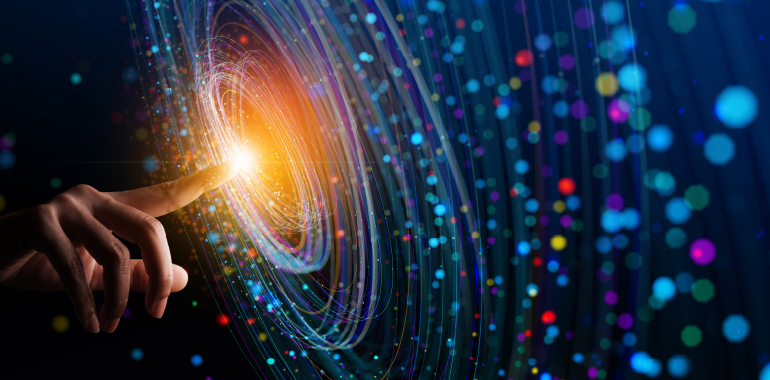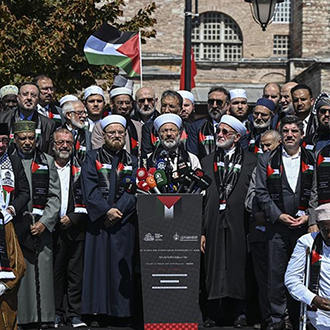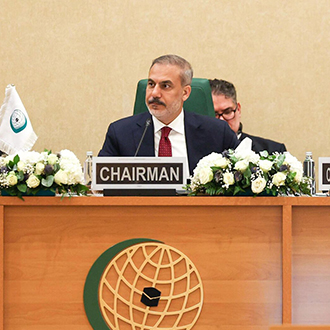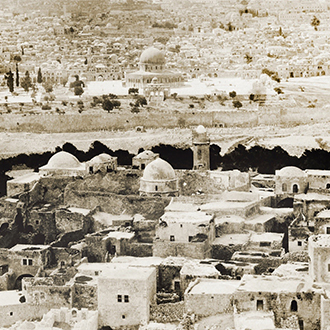In the religion of Islam, human beings are revered and responsible beings, consisting of the unity of spirit and body, and are made superior to most of the creatures due to their intelligence and will (Isra, 17:70). The fact that they are the most perfect, beautiful, and distinguished beings on earth in terms of both physiological and mental qualities is stated in the following verse: “Indeed, We created humans in the best form.” (Tin, 95:4) Islam is at odds with the attempt to minimize humans—who have soul-body integrity, free will, values, and faith—to the dimension of matter, abstracting them from value, meaning, and spirituality and making them robots.
History and religion in the age of artificial intelligence
The philosophical background of artificial intelligence constitutes the teaching that we find in other religions, especially conceptualized as imago dei [“God created man in his own image. (Genesis 1:27)] in the Bible. According to this, the development of an artificial intelligence means that humans create intelligent machines in their own image, similar to the fact that God creates human beings in His own image by granting them qualities such as intelligence, power to rule on earth, etc. In addition to this approach, in which humans are given the role of god, there are also approaches in which artificial intelligence is deified, representing a new type of perfect and superhuman intelligent being. Presented to replace the traditional metaphysical god, this new god is brought to the attention of modern humans who need to rely on a transcendent being. Another possible effect of artificial intelligence on religion in the context of the human-god relationship is the development of mostly atheistic new movements focused on artificial intelligence and transhumanism.
According to Islam, there is no beginning or end to the existence of Allah, who exists spontaneously and necessarily (wajib al-wujud) as a requirement of His essence. Allah, who is not compound and is one and unique in His essence, attributes, and actions, is the creator and maintainer of the universe. Artificial intelligence systems, on the other hand, are not obligatory and need human-made software and hardware other than themselves. Again, it should not be forgotten that artificial intelligence is based on limited and finite materials in the universe, which has been revealed to have a beginning and an end with theories such as the Big Bang and entropy. One cannot speak about uniqueness when referring to intelligent devices and robots that were created by imitating human cognitive abilities and physiological traits. Although artificial intelligence possesses abilities such as knowledge and strength, due to its later creation and limited life, it is not feasible for it to possess the perfection of Allah's (swt) attributes. Furthermore, no artificial device, no matter how advanced, will be able to provide a believer with the sense of tranquility, security, and assurance that comes from believing in Allah (swt).
Society in the age of artificial intelligence
When it comes to the risks of artificial intelligence, the first issue is how societies and social institutions will adapt to the innovations that this technology will bring. Considering that this adaptation will not occur simultaneously in all countries, it is inevitable that global injustice will increase. On the other hand, it is predicted that robots will displace people in many more professions in the future. In this case, the first to lose their jobs will be low-skilled workers, while the rapid increase in the income of those who use technology better will deepen the gap between classes. Leaving people without income and aimless will cause social and global upheaval.
The increasingly efficient and wide-reaching nature of artificial intelligence systems in almost all areas of life requires the reorganization of legal systems. Determining the social and legal status of artificial intelligence as an active agent interacting with its environment, making decisions, and acting is essential for determining the rights and responsibilities of machines and the mutual ethical principles between humans and machines. The fact that intelligent systems operate with increasing autonomy increases the importance and urgency of drawing up this ethical and legal framework.
Islam has adopted the protection of the five fundamental principles (zarurat al-hamsa) for all people: life, mind, honor, religion, and property. In Islam the implementation of moral, just, and balanced economic policies—in which the interests of society are prioritized over the interests of individuals, wealth is distributed equally, and all members of society are engaged in business in line with their means—is one of the main requirements for the formation of this ideal order.
In order to determine the legal and social status of artificial intelligence, it should be clarified whether these intelligent systems should be considered as subjects or objects. At this point, explanations of Islamic sciences about the nature of artificial intelligence will be an important source. The fact that kalam is a discipline that develops theories about the elements and nature of the universe by closely dealing with physics and cosmology and presents human conceptions from there reveals its leading role in the examination of this technology. On the other hand, as kalam is a universal science that reveals and proves the principles of other sciences, it will also establish a basis for approaches to be developed by other Islamic sciences, especially fiqh.
The environment in the age of artificial intelligence
Artificial intelligence, which is a sub-branch of technology that people have developed in order to channel nature for their own purposes and benefit from it, is not only a human concept but also a concept related to nature. Especially in the period of the COVID-19 epidemic, the value of sustainable ecological balance has been better understood, and it has become more important to determine the contribution or threats of technology to this balance and to take the necessary steps. According to the majority of experts, artificial intelligence has the potential to mitigate the effects of climate change. However, one of the main contributors of carbon emissions, which is one of the biggest causes of the climate crisis, is the very high amount of energy used by intelligent systems, especially in intensive data processing and storage.
According to Islamic belief, Allah created the universe according to a certain measure and made perfect order, balance, and harmony prevail in it. The world, which is equipped with evidence pointing to the existence, oneness, names, and attributes of Allah, is at His command at all times, and people are tasked with protecting the unique order that Allah has placed. Of course, it is natural and even necessary for people to benefit from the opportunities of science and technology while fulfilling this duty. In this context, the development of environmentally friendly artificial intelligence systems and their use in predicting, detecting, and eliminating global ecological problems will yield beneficial and effective results.
Evaluation
Artificial intelligence is perhaps the most controversial technology in terms of its religious, philosophical, and ethical implications and consequences among the technologies that humans have discovered thanks to the intelligence, inquisitiveness, and inventive abilities bestowed on them by Allah. In particular, it can be the subject of claims that clearly contradict the traditional interpretations of religion about the nature of people and the understanding of God. In this respect, their intellectual backgrounds require deep religious and philosophical investigations. However, during this examination, a biased opposition should be avoided. As a matter of fact, the quality of a technology, including artificial intelligence, is determined not by the technology itself but by the purposes for which it is used. Therefore, religions will have no objection to a moral, ethical, legal, faultless, reliable, and environmentally friendly artificial intelligence technology that will be used as a tool for the responsibility of construction and reformation on earth of people whose nature and dignity have been preserved. Considering the widespread use of this technology and the power gained by countries with this technology, it is essential for Muslims to put this issue on their agenda in all fields, including religious and social sciences, in order to have a say in the development and implementation of artificial intelligence.









